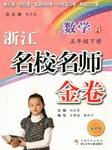题目内容
London life for Cathy Hagner and her three children is set to permanent.
Their 1 school day and her job as a lawyer's assistant are busy enough. 2 Hagner also has to take the two boys to soccer or hockey or basketball while dropping off her 3 at piano lessons or Girl Scout Club.
4 , the exhausted (精疲力竭的) family doesn't get home until 7 p. m. There is just time for a quick 5 before homework.
In today's world, middle-class American and British parents treat their children 6 they were competitors 7 for some finishing line.
Parents take their children from activity to activity to make their future 8 . It seems that raising a genius (英才) has become a more 9 goal than raising a happy and well-balanced child.
“ 10 across the country are reporting a growing number of children 11 from stomachaches and headaches 12 exhaustion and stress.” says child expert William Doherty of the University of Minnesota.
Teachers are 13 exhausted kids in the classroom. It's a very serious problem. Many children attend 14 clubs by necessity. But competitive pressures also 15 an explosion of activities. They 16 sports, language, music and math classes for children as 17 as four.
“There is a new parenting trend (趋势) under way which says you have to tap all your child's potential (潜能) at a young age, 18 you will let them down,” says Terry Apter, a Cambridge-based child and adolescent psychiatrist (青少年精神病专家).
“It isn't entirely 19 : there have always been pushy parents: But what was seen as strange behavior before is now well 20 .”
1.
A. half B. part
C. full D. whole
2.
A. And B. So
C. But D. For
3.
A. daughter B. sons
C. girls D. kids
4.
A. Often B. However
C. Though D. Seldom
5.
A. lunch B. supper
C. breakfast D. tea
6.
A. even if B. as if
C. now that D. in case
7.
A. hoping B. caring
C. calling D. racing
8.
A. equal B. smooth
C. excited D. bright
9.
A. exact B. excellent
C. difficult D. important
10.
A. Doctors B. Lawyers
C. Engineers D. Businessmen
11.
A. dying B. preventing
C. suffering D. learning
12.
A. due to B. so as to
C. according to D. referring to
13.
A. dealing with B. playing with
C. going on with D. getting on with
14.
A. grown-up B. bodybuilding
C. after-school D. night
15.
A. grow B. reduce
C. stop D. create
16.
A. have B. enjoy
C. teach D. include
17.
A. old B. young
C. many D. much
18.
A. except that B. therefore
C. otherwise D. unless
19.
A. old B. new
C. wrong D. right
20.
A. respected B. accepted
C. refused D. manage
解析:

 浙江名校名师金卷系列答案
浙江名校名师金卷系列答案 全优冲刺100分系列答案
全优冲刺100分系列答案LONDON—Life for Cathy Hagner and her three children is set to permanent(永久的) fast-forward.
Their full school day and her job as a lawyer's assistant are busy enough. But Hagner also has to take the two boys to soccer or hockey or basketball while dropping off her daughter at piano lessons or Girl Scout Club.
Often, the exhausted family doesn't get home until 7 pm. There is just time for a quick supper before homework. In today's world, middle-class American and British parents treat their children as if they are competitors racing for some finishing line.
Parents take their children from activity to activity in order to make their future bright. It seems that raising a genius has become a more important goal than raising a happy and well-balanced child.
"Doctors across the country are reporting a growing number of children suffering from stomachaches and headaches due to exhaustion and stress," says child expert William Doherty of the University of Minnesota.
Teachers are dealing with exhausted kids in the classroom. It's a very serious problem. Many children attend after-school clubs by necessity. But competitive pressures also create an explosion of activities. They include sports, language, music and math classes for children as young as four.
"There is a new parenting trend under way which says that you have to tap all your child's potential at a young age; otherwise you will let him down,” says Terry Alter, a Cambridge-based child and adolescent psychiatrist (青少年精神病专家)
"It isn't entirely new: there have always been pushy parents. But what was previously seen as strange behaviour is now well accepted."
1.From the second paragraph of this passage we can find that ______.
|
A.Hagner wastes much time helping her children's lessons |
|
B.Hagner doesn't spend much time on her full-time job |
|
C.Hagner is interested in spots and music |
|
D.Hagner busies herself by following a trend |
2.British parents, as the writer described in this passage, _____.
|
A.treat their children as spots players |
|
B.pay no attention to their children's lessons |
|
C.bring up their children in a simple way |
|
D.give their children little time to develop freely |
3.The writer's opinion about after-school clubs is that ______.
|
A.activities in the country are too competitive |
|
B.children should attend four clubs at a time |
|
C.some clubs result in competitive pressures |
|
D.clubs should have more subjects for school children |
4.The last paragraph tells us that in Britain ______.
|
A.parents used to take their children to every club |
|
B.parents used to be wise on how to raise children |
|
C.parents have all benefited from children's clubs |
|
D.parents have come to know the standard of education |